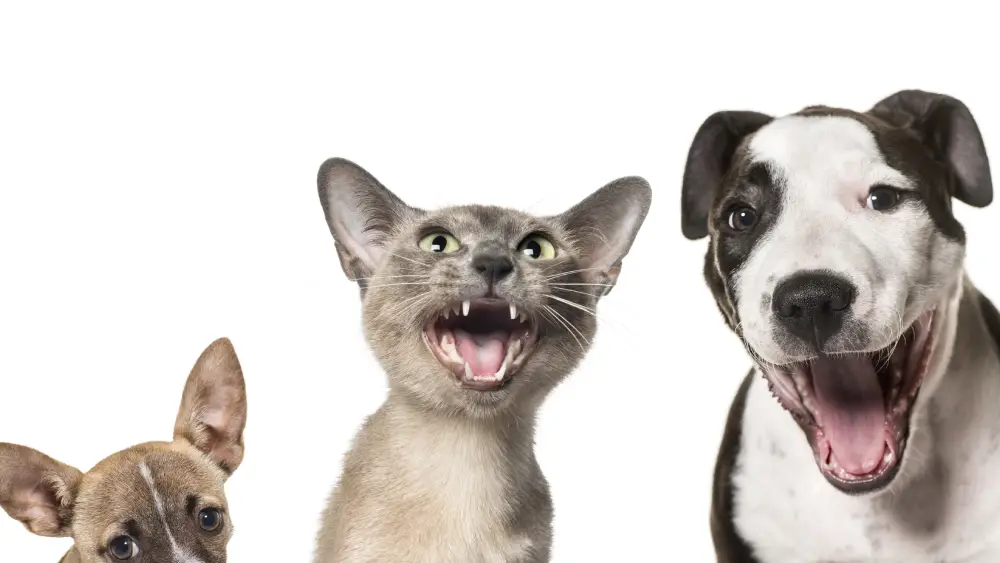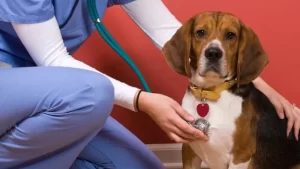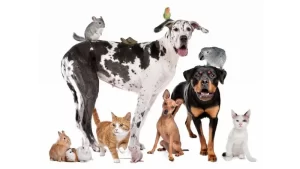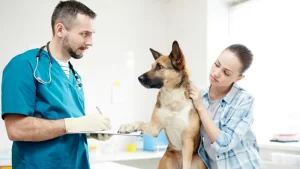Things to Consider Inside Your Home
- No Bones Please: Avoid giving bones to your dogs or cats, particularly turkey bones. Poultry bones easily splinter and cause serious injury, while bone fragments can cause intestinal blockages or lacerations.
- Healthy Treats: Chocolate and other sweets should not be given to animals. Chocolate contains theobromine, a chemical that can be deadly to cats and dogs, though not harmful to humans. The size of the pet, amount consumed and type of chocolate determine the damage. Dark is worse than milk.
- Poisonous Plants: Many popular holiday plants are poisonous to animals including mistletoe, holly, ornamental pepper and Christmas rose. Remember to keep these plants out of reach of pets – especially birds. Poinsettias are NOT poisonous to pets. This has been a long-standing rumour. Some pets, who have a sensitivity to the latex contained in the plant, may get V and/or D.
- Avoid Tinsel: If you have a Christmas tree and pets, you have a recipe for trouble. First, make sure the tree is well secured. Try to place decorations above paw height and use string to hang the bulbs instead of hooks, which are easily dislodged. If possible, use non-breakable ornaments. Avoid using tinsel or angel hair. Cats and dogs will ingest both, which can cause intestinal problems. Cords for lights should be made inaccessible to pets – especially from chewing puppies and exploring kittens. Keep in mind that the chemicals added to the water reservoir of your Christmas tree to keep your tree living longer won’t do the same for your pet. The chemicals are toxic to animals, so keep the reservoir covered.
- Watch Toys: Avoid purchasing pet toys with small or soft pieces that can be chewed and swallowed. Be sure to inspect pet toys regularly and discard deteriorating ones.
Things to consider outside with your pet
During the winter season nature provides outdoor animals with natural insulation in the form of a denser hair coat and an added layer of fat just under the skin to help retain body heat. This adaptation does not mean, however, that animals are immune to winter cold.
For outdoor animals, snow cover and ice can make it difficult even for large animals to reach their usual sources of food and fresh water. Think about bringing animals indoors. Otherwise, remember that animals need more calories to fend off the cold, so in addition to providing daily fresh water. When the T drops bring pets indoors – dogs and cats are safer indoors.
- Dogs in Pick-up Trucks: It is never appropriate to transport a dog in an open pick-up truck – especially in winter. Wind chill plus slippery conditions, which result in higher accident rates, put your dog at risk.
- Ice-Free Water: If you keep any animals outdoors during winter weather, be sure their water supply is checked twice a day to keep it ice-free.
- Antifreeze: Many animals like the taste of antifreeze and will readily consume it when given the opportunity. However, antifreeze, even in the smallest amounts, can have a very harmful and often fatal effect on your pet.
- Salt: The salt used to melt snow irritate the pads of pets’ feet. Wipe off your pet’s feet before they lick their paws.
- Warm Engines: Cats and wildlife gravitate to warm engines during cold winters. Be sure to bang your hood to avoid injuring an animal in your engine.
The holiday season is a time for caring and giving, and with a little common sense, you can ensure your pets have a safe enjoyable winter season with you.





